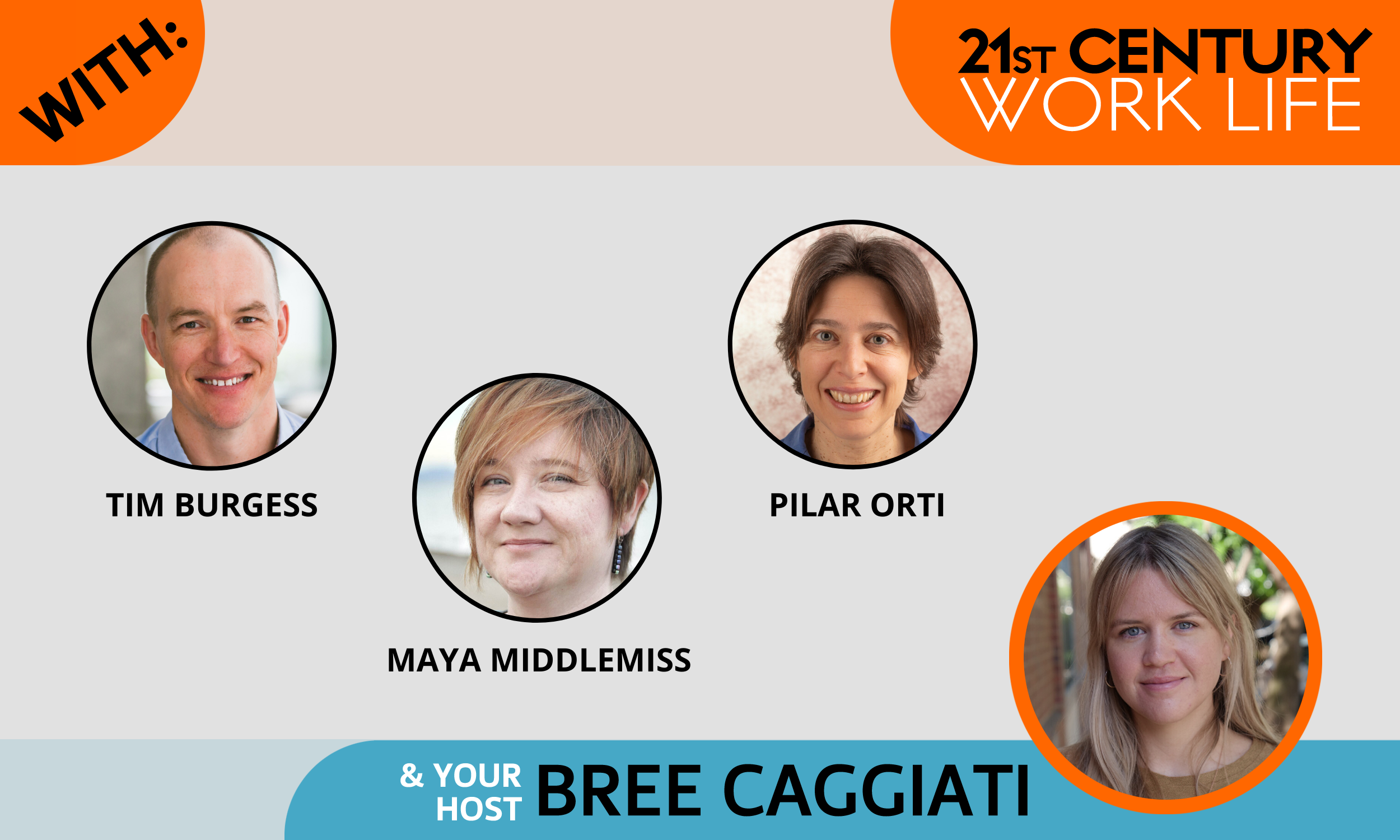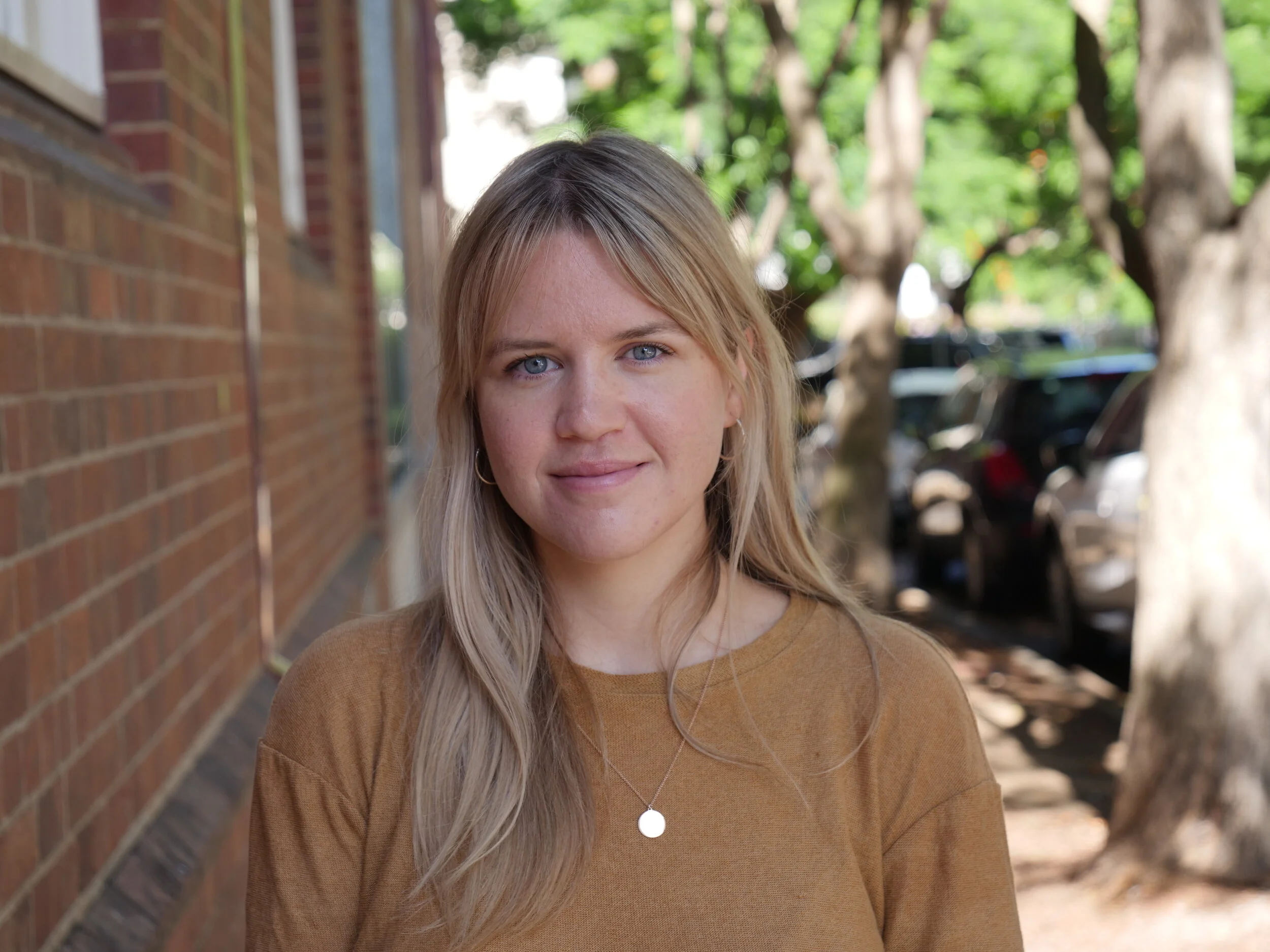WLP221 Connection and Disconnection in Remote Teams
Welcome to the first of our new series of 7 episodes on the theme of “connection and disconnection in remote teams”, in association with our partners at Shield GEO.
Shield GEO help businesses employ people globally by taking care of all the associated administration, legal and financial - supporting truly global remote work, in a way that’s a great alignment with everything we value at Virtual Not Distant. So we’re very excited to be expanding our podcasting repertoire with this new collaboration.
Bree Caggiati
Our host for this series is Bree Caggiati, and for this inaugural episode she is joined by Shield GEO’s Tim Burgess, as well as Pilar and Maya from Virtual Not Distant of course.
The chosen theme began as a conversation initially about loneliness in remote teams - a natural part of the maturing of the remote work conversation, as more and more people open up to the possibilities it offers. But this evolved into an exploration of both sides of the coin: connection and disconnection.
Tim reflected on a research study they had conducted with Sydney University students about the remote work community and what their needs were - what questions were being asked online, and not being well answered. The idea of disconnection due to distance emerged strongly there, as part of the context of greater awareness of emotional well-being more generally in the social and business discourse (and let’s remember as well that people in traditional colocated workplaces can also feel isolated and disconnected).
Four podcasters connecting remotely from Australia, Canada, UK and Spain..!
The extent to which hirers and employers are responsible for the mental health of their team is also under the microscope, but perhaps not all managers are comfortable talking about it at any stage (and this too is not an issue limited to remote work). Where do the boundaries emerge, between duty of care, self-sufficiency, privacy, and productivity, in these sensitive conversations, as people emerge from the ‘honeymoon period’ of a new role?
Bree herself is physically isolated from the rest of her ShieldGEO team, being based in Canada while the others are in Australia - making this podcast series a truly global, 4-country collaboration, incidentally. Bree has found using a co-working space more regularly has helped overcome isolation. But the issue is very polarising, and early adopters of remote work (especially advocates, and dare we say, podcasters in this space…) are highly self-selecting. Many of us have never experienced loneliness, working in the way we consciously chose - but as more organisations ‘go remote’, it inevitably becomes less about individual choice for every remote team member.
Feelings of disconnection can come from many sources in addition to loneliness. It can be related to trust and autonomy, and the visible teamwork activities we advocate for in Virtual Not Distant are all about connecting through the work itself by making that manifest. This is important because sometimes we feel more connected to our colleagues at work, than those in our local communities and social networks. In the mainstream conversation technology often gets blamed for alienation and disconnection, but actually it can play a really positive role if we use it in the right way, and remote work can lead by example on this.
Perhaps it’s easy to blame the factor of remote work, particularly working from home, if we feel disengaged from other people generally -but there could be many causes. Work can provide structure and tangibility in our day which might be absent in our personal lives, and maybe we need to better tune in to our own emotional and physical needs, when there’s no manager or colleague to reflect off in our immediate environment. We talk about great remote workers having personal attributes of resilience and flexibility, and emotional self-awareness is a part of this - the ability to understand our own needs for self-care or rest or exercise or space, and ensure they are addressed before a crisis happens. This includes knowing how and where you work best, and constructing that environment around you.
Recruiting for these personal qualities, instilling a culture during onboarding that these issues are for real, these are challenges for any onboarding process. (For more on onboarding in remote teams check out episode WLP219.) Tim and the Shield GEO team have recognised that in training new hires generally, there’s a difficulty in taking on board large amounts of complex information. Finding the right time to bring up these issues of how they’re really feeling emotionally needs a lot of thought, but by planting the seeds with new people that the organisation cares might at least make it easier for new colleagues.
With so much to explore during this series, we’re really looking forward to hearing from listeners about how these issues are impacting you, what your concerns are with connection and disconnection in remote teams. Please contact us, or you can tweet Virtual Not Distant, or Pilar and Maya directly, with any of your thoughts and ideas - and we do appreciate that these issues may be both complex, personal and sensitive, we welcome confidential and anonymous contributions via the feedback form, every bit as much as the public conversation.
If you like the podcast, you'll love our monthly round-up of inspirational content and ideas:



